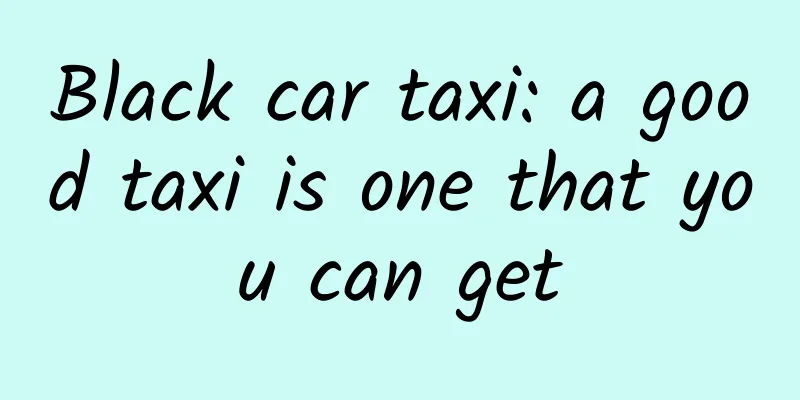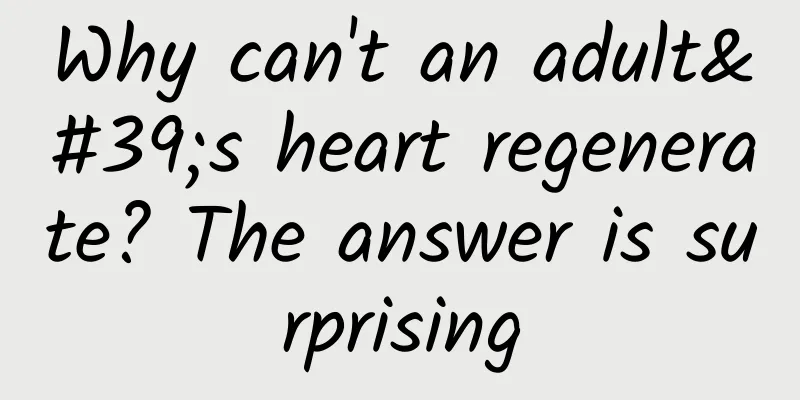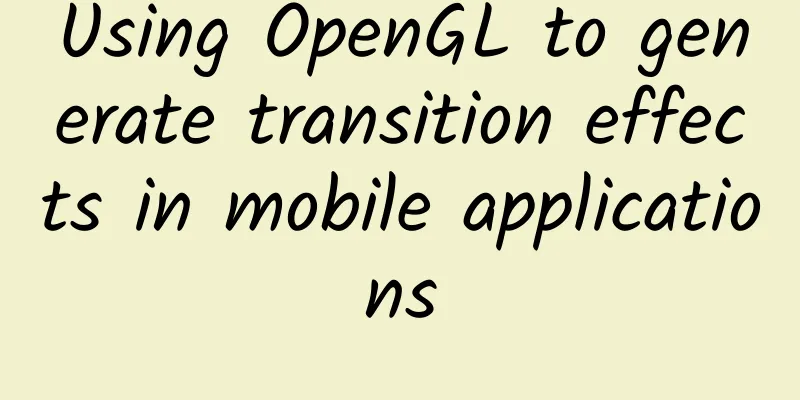Black car taxi: a good taxi is one that you can get

|
Every time there are bizarre remarks at the two sessions, this time is no exception. Yesterday, Yang Chuantang, a representative of the two sessions and Minister of Transportation, finally showed up. He said a lot of irrelevant things in an interview with the media, which can be summarized as three "resolutes": resolutely crack down on illegal taxis, resolutely crack down on private cars acting as special taxis, and resolutely not reduce the "membership fee" for taxis. Li Shufu, a member of the National Committee of the Chinese People's Political Consultative Conference and chairman of Geely Automobile, complained at a media conference for the two sessions last year that it was difficult to get a taxi in Beijing. "I took an illegal taxi here this morning because there were no taxis at all." They are all representatives of the two sessions. Some of them speak nonsense, while others speak the truth. 【What's wrong with black cars? 】 Not only Li Shufu, I also often take illegal taxis. When I lived near Lishuiqiao before, there were no buses or taxis after the subway. There were only illegal taxis and small Bengbeng (electric tricycles). I had to take them. As a result, we became very familiar with each other. I didn't need to negotiate the price when I got in the car, and I didn't need to tell him where I was going. He knew my home. I am not the kind of person who generalizes from a few examples like the Minister of Transportation. Although I did not think there was anything wrong with taking a black car at Lishuiqiao, the night before yesterday, when I went home from dinner at Nanjing Hotel near Wangfujing with my classmates, I used Kuaidi and Didi to call a taxi and a private car. After calling for half an hour, no one responded to the four services. I had no choice but to go out and hail a taxi. There were quite a few empty taxis, but they would not leave unless I set a price. In other words, these taxis had transformed into black cars. There was also a row of black cars parked next to them, and the drivers were negotiating prices with passengers under the cars. This is really at the feet of the emperor, 200 meters east of the Donghua Gate of the Forbidden City. So, Minister Yang, what is an illegal taxi? What is the difference between the taxis outside Donghuamen and illegal taxis? At that time, the only difference between illegal taxis, private cars and taxis was that taxis were more likely to "rip off" passengers because they looked legitimate. Let's look at a set of public data. Currently, there are about 1.35 million registered taxis in the country, and there has been no significant increase in the past 10 years. Take Beijing as an example. Between 2004 and 2014, the population increased by about 7-8 million, while the number of taxis has remained at more than 60,000. At the same time, the number of unregistered "black cars" is at least 100,000. According to statistics, 1.5 million people in Beijing take taxis every day, of which only 900,000 can get a taxi, with a success rate of only 60%, which is just a passing score. What should the 600,000 people who can't get a taxi do? Crowd into buses, subways, and "black cars". Those who are lucky and have a bright ancestral grave may be able to draw a license plate, so they buy private cars and get stuck on the road. Across the country, there are about 60 million trips per day, and taxis and illegal taxis can only meet about 30 million trips each. Of the 350,000 rental license plates in the country, only a portion are operating license plates, which can carry a maximum of 4 million orders per day, and 26 million trips per day are met by illegal taxis. After talking about so many seemingly professional data, my point is very clear. Don't tell me which one should be cracked down on and which one should be encouraged, such as illegal taxis. The serious thing is to let the people have cars to ride. As for the rhetoric of safety and stability, that is what the managers need to consider. The bus can still be stolen, and the private car can still be robbed. If illegal taxis are unsafe, then we should bring them into the management system, give them a name and rules, and let them abide by them. The safety problem can definitely be solved. If the government continues to play the "cat and mouse" game, illegal taxis will always be a hidden danger. The illegal taxis are not their fault, but the incompetence of the management department. [Private cars can make black cars better than taxis] After talking about illegal taxis, let’s take a look at private taxis. After the emergence of private cars as a new thing, there was suddenly a glimmer of hope for many problems such as the safety and stability of illegal taxis. Turning illegal taxis into private cars and incorporating them into the management system not only solves the stubborn safety problem of illegal taxis, but also fills the gap in people's travel needs. It is the best of both worlds. As managers, government departments can manage private cars to allocate more resources to meet people's travel needs. Services such as Kuaidi No. 1 Private Car and Didi Private Car have the ability to provide higher-performance cars and more professional driver services. The platform can also purchase insurance to provide more protection for passengers, drivers and cars. Since it sounds so good, why don't you clean up the black taxis? Haha, this is the most critical part of the problem, the so-called deep water area of reform. Although everyone knows that this is the most scientific and reasonable way to do it, they just don't know how to do it, because this will inevitably affect the cake in the hands of certain vested interest groups. So, don't talk to me about safety or compliance. In the final analysis, they don't want to give up their vested interests. As for whether ordinary people can get a taxi, they don't care. In China, there is a concept called "franchising" in many industries. The taxi industry is subject to license restrictions. Whether it is illegal or not, whether it is professional or not, it all depends on a piece of paper license. Simply put, the cars on the road are divided into operating and non-operating vehicles. Compared with the former, the latter, in addition to the necessary registration, annual inspection, and compulsory insurance, have stricter safety requirements, more frequent inspections, clearer responsible entities, and more certain liability solvency regulations. Some of the problems involved in the license can be solved by technical means through the special car platform, while others need to be jointly explored by the government and special cars. If you are worried that it is unsafe for private cars to access the platform, you can use more and more complex regulations to constrain the platform access system, or select some cities for pilot projects to gradually relax. Furthermore, when the ride-hailing platform develops, government management departments no longer need to play the "cat and mouse" game with illegal taxis. The ride-hailing platform can use technical means to naturally eliminate illegal taxi services under the original system, fundamentally improving safety and stability. As travel becomes more convenient and safer, the number of private cars can be further reduced, and the value of green travel and environmental protection can be further reflected. This is the true maximization of social benefits and is in line with what Premier Li Keqiang said: "Simplifying administration is not simple, and delegating power is not laissez-faire." If the existing license plate control system is still used to manage private cars, and then to distinguish between "legal private cars" and "illegal private cars", it is actually just a change of name, which cannot solve people's travel problems. Instead, it will change the original "big monopoly" of the entire industry into a regional "small monopoly". Here is another set of data. So far, there are no more than 350,000 cars with rental licenses in the country, which is less than one-tenth of the existing "black cars" in the country. So, is it useful to block it? If the road is blocked, it can be unblocked slowly, but if the policy is blocked, it will be difficult to unblock it. The road is right here. Whether to take it or not is not up to me, a scholar, nor is it up to Minister Yang, right? However, no matter what, the curtain of reform has been raised. Once the bow is drawn, there is no turning back. The wheel of history will roll forward. Even if it cannot be changed today or this year, it will change the lives of some people tomorrow or next year. As a winner of Toutiao's Qingyun Plan and Baijiahao's Bai+ Plan, the 2019 Baidu Digital Author of the Year, the Baijiahao's Most Popular Author in the Technology Field, the 2019 Sogou Technology and Culture Author, and the 2021 Baijiahao Quarterly Influential Creator, he has won many awards, including the 2013 Sohu Best Industry Media Person, the 2015 China New Media Entrepreneurship Competition Beijing Third Place, the 2015 Guangmang Experience Award, the 2015 China New Media Entrepreneurship Competition Finals Third Place, and the 2018 Baidu Dynamic Annual Powerful Celebrity. |
<<: Virtual Reality Entrepreneurship: How long will it take to see spring?
Recommend
How to design SEM account structure from 0 to 1?
Account structure is a difficult problem for begi...
"Mask Companion" is all over the Internet! Cool down in 1 second, refreshing and not stuffy? Doctors urgently remind: It may induce disease
Expert of this article: Wang Qian, attending phys...
Which is more terrible, blindness or deafness?
What is the world like for the blind and the deaf...
The most complete! Summary of Zhihu’s traffic marketing strategies!
Did you know: What kind of brands are suitable fo...
How much does it cost to get a license: How to do efficient SEO work? What aspects can be done better?
The first step in SEO optimization is to select a...
In information flow promotion, how can you let users quickly understand your product? Just 2 steps!
When users are unable to fully understand the pro...
"Shenzhou V" "Fengyun Satellite" appeared in Lingnan? It was made of lime!
The traditional intangible cultural heritage of L...
Meitu competitive product analysis report!
Photo editing software and photography software a...
One TikTok video generated 100,000 new app activations and 1 million followers in 58 days. How can we seize the benefits of TikTok?
Last year, at the annual meetings of major compan...
Small in size but powerful in function, it is the "big boss" among the five fingers
Do you know which of our five fingers is the most...
Why Lenovo's mobile phones are getting slower and slower
Recently, a statistic of "Global Smartphone ...
How to develop the financial accounting applet in Zhongshan and how to make the financial diary applet?
With the economic downturn, many people have begu...
Huawei App Market brand resource bidding promotion process!
1. Introduction to brand resource bidding promoti...
If you could do it all over again, would you still choose me as your mentor? — The growth of a "Shamatte" boy
Produced by: Science Popularization China Author:...
Do you think it's cool to open the bottle cap with your teeth? "Open" has "teeth" logic!
Friends gathering, family dinner, late night barb...









